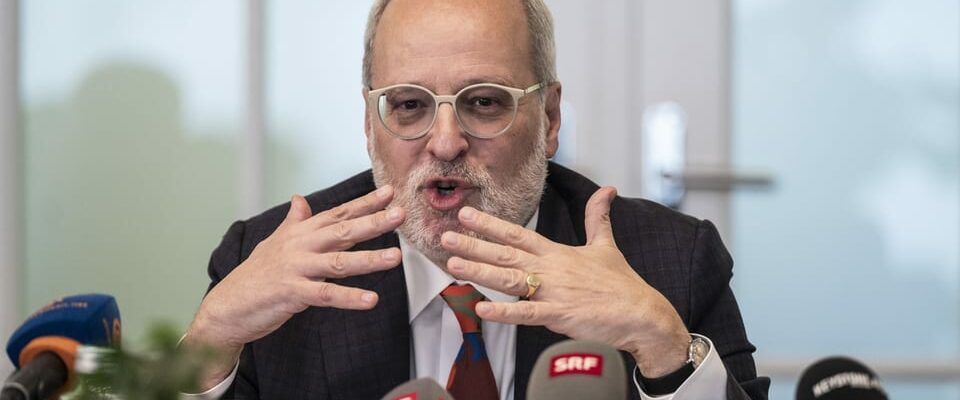Contents
The Swiss chief diplomat sees good chances for an agreement with the EU. He doesn’t want to be more specific at the moment.
Switzerland’s top diplomat was one of the fastest car racing drivers in Switzerland when he was young. An automotive comparison is therefore obvious when asked how he assesses the planned negotiations with Brussels. Alexandre Fasel speaks of a 24-hour race in Le Mans that will be completed at the speed of a Formula 1 car.
Interestingly, chief pilot Fasel is not behind the wheel himself at the upcoming “diplomatic Grand Prix”: his deputy will lead the negotiations with the EU because he is already deeply involved in the matter.
Fasel himself will “coordinate” the negotiations with the EU and the accompanying domestic political negotiations, for example between employers and unions. He emphasizes that he has no problem with that at all. He intervenes when the situation is blocked – when “the negotiators cannot resolve problems”.
The mistrust has now largely disappeared.
Negotiations will not begin until next spring at the earliest. Before that, the Federal Council must definitely adopt the negotiating mandate. Fasel now sees good chances for successful negotiations.
When he took office three months ago, mistrust still dominated Brussels, he says: “The mistrust was based on the fact that the Commission said it was not sure whether Switzerland actually wanted these agreements.” This mistrust has now largely disappeared.
Legend:
Alexandre Fasel has been Switzerland’s chief diplomat since September 2023. It will probably be measured primarily by the success of the planned negotiations with the EU. The post is an ejector seat. Three state secretaries have already served under EDA boss Ignazio Cassis alone.
Keystone/Peter Schneider
Bern and Brussels have now completed the preliminary negotiations, the “explorations”. For example, it is about the role of the EU Court of Justice, the adoption of future EU law and the protection of high Swiss wages.
Expense dispute as an example
Questions about expenses, for example, remain unresolved here. In the EU, companies only have to pay their employees the same amount as the country of origin for overnight stays or food when they work abroad. Companies from low-wage countries can thus gain advantages on the basis of their employees in Switzerland.
The regulation adopted internally by the EU does not correspond to the EU legal principle of equal pay for equal work in the same place.
On the issue of expenses, Fasel provides some insight into the negotiation strategy: Bern questions the EU’s interpretation. The regulation made internally by the EU does not correspond to the EU legal principle of equal pay for equal work in the same place, said Fasel. This should be expressed.
Another point of negotiation is money: In the future, Switzerland should pay money to poorer EU states on a binding and regular basis. The EU could demand significantly higher amounts than Switzerland has so far paid “officially voluntarily”. How much money is there? This discussion has not yet taken place, says Fasel.
The agreement at home
It remains just as vague about the negotiations between the Swiss unions and employers: the idea is that they should agree on measures at home and thus cushion concessions to the EU on wage protection. For example, there are deeper hurdles under discussion in order to make collective employment agreements binding for an entire industry.
But there is apparently no agreement in sight here: “There are still certain tensions and disagreements between the social partners. There is certainly still a need for clarification and discussion,” said the Swiss chief diplomat in his first appearance in front of the media after just over 100 days in office. He has mastered the art of talking a lot when necessary and saying few concrete things.
